Mark Anthony Neal's Blog, page 237
March 21, 2021
The Quarantine Tapes 174: Thelma Golden
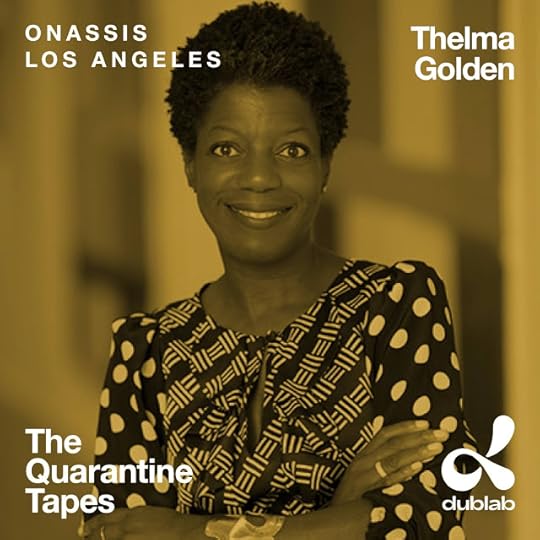
"Paul Holdengräber is joined by Thelma Golden on episode 174 of The Quarantine Tapes. Golden is Director and Chief Curator of The Studio Museum in Harlem, the world’s leading institution devoted to visual art by artists of African descent. She tells Paul about that museum’s history and mission as well as how they have adjusted their programming to address this moment of the pandemic. Thelma tells Paul about how the Studio Museum interacts with its community in Harlem and talks about the value of being able to think of that space both as it was and as it will be. They dig into digital programming, the museum’s new building, and the role of institutions led by people of color in this time of reckoning. Finally, Thelma and Paul chat Lucille Clifton and how we look back at the art that influenced us in the past."
March 20, 2021
A Closer Look | Jean-Michel Basquiat's 'Warrior'
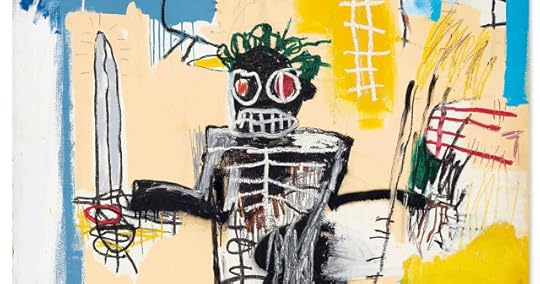
"Join specialists Alex Rotter and Evelyn Lin as they discuss the epic masterpiece 'Warrior' by Jean-Michel Basquiat. 'The warrior symbolizes strength,' says Rotter. 'The warrior also symbolizes protection. I think the warrior in his case, symbolizes the willingness to fight for your beliefs.' Discover why this is one of the finest and most powerful works created by the artist in 1982 — the year in which he 'made the best paintings ever,' according to the artist himself."
Chanda Prescod-Weinstein’s Disordered Cosmos
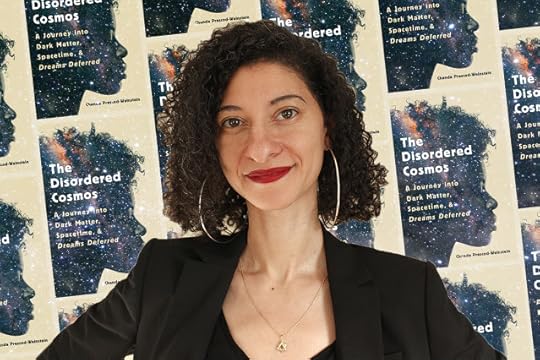
"LA Review of Books host Eric Newman is joined by Dr. Chanda Prescod-Weinstein to discuss her book The Disordered Cosmos: A Journey into Dark Matter, Spacetime, and Dreams Deferred, which opens up with some very heavy science, explaining quarks, dark matter, and other phenomena that point to the limits of our knowledge about the how the universe, and everything in it, functions. But at the heart of the book is a consideration of how the social construction of science foments a toxic culture; this consideration may not only help us to do science better, but also to do better science."
LA Review of Books · Chanda Prescod-Weinstein's Disordered CosmosPatti LaBelle and Gladys Knight on The Verzuz Phenomenon

"When the pandemic shut down live concerts, pioneering hip hop producers Swizz Beatz and Timbaland wanted to give people a show, and developed what became a viral online music battle series: Verzuz, in which noted musical artists (such as John Legend and Alicia Keys) perform head-to-head. CBS Sunday Morning contributor Kelefa Sanneh talks with two musical legends, Patti LaBelle and Gladys Knight, about their recent matchup."
Sanya N'Kanta – “I.C.E. at the Door" [Official Video]
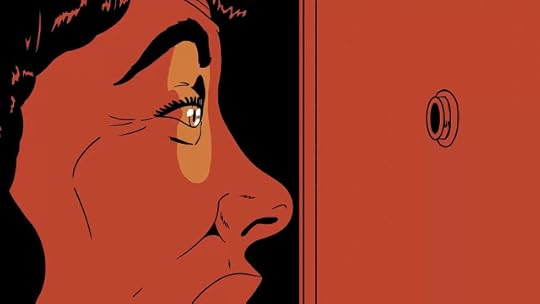
Official music video for Sanya N'Kanta's "I.C.E. at the Door" from his 2020 album The Counterfeit Revival.
Black Farmers and COVID Relief by Ben Jealous
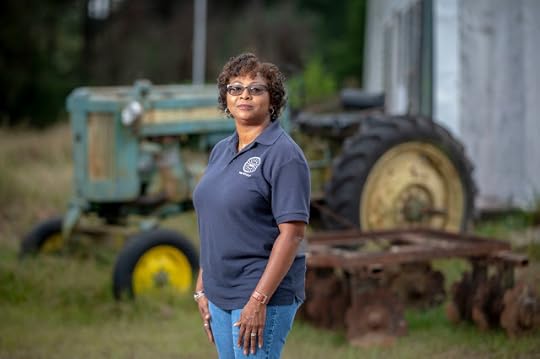
Black Farmers and COVID Relief
by Ben Jealous | @BenJealous | NewBlackMan (in Exile)
If you ever begin to doubt that elections matter, think about Black farmers.
The new COVID relief law takes significant steps to address decades of shameful discrimination against Black farmers by the federal government. And that would not have happened without voters putting Joe Biden and Kamala Harris in the White House and giving Democrats a majority in the Senate.
The discrimination is well-documented. So is its devastating impact on Black farming families.
Consider a few statistics. One hundred years ago, there were more than 925,000 Black-run farms. By 2017, that number had dropped by more than 95 percent. Today less than two percentof farmers in the U.S. are Black, and 98 percent of farmland is owned by white landowners.
Part of the problem is state laws that often force the sale of inherited farmland for pennies on the dollar. But this is not a problem confined to the Confederate states or the Jim Crow era. This is largely a problem of intentional discrimination by employees of the federal government.
Bigoted bureaucrats and discriminatory policies at the U.S. Department of Agriculture and its Farmers Home Administration lending agency abused Black farmers for decades. Black farms were falsely classified as unproductive. Farmers were unfairly denied loans that they were entitled to receive. The government stalled and buried their complaints about discrimination. Land was taken and given to white farmers.
Senate Democrats reported recently that Black farmers in the South have lost more than 12 million acres of farmland since the 1950s.
In 1982, the U.S. Civil Rights Commission said that the Farmers Home Administration’s unresponsiveness “hindered the efforts of Black small farmers to remain a viable force in agriculture.” During the 1990s, many farmers were cut out of meaningful help they should have gotten from lawsuit settlements.
Official neglect and mistreatment of Black farmers continued into the 21st Century: one study found that from 2006 to 2016, the federal government was six times as likely to foreclose on a Black farmer as on a white one. Money handed out by the Trump administration to survive the trade war he started, and to help farmers deal with the pandemic, mostly bypassed Black farmers.
Last fall, Sens. Cory Booker, Elizabeth Warren and Kirsten Gillibrand introduced the Justice for Black Farmers Act. It was designed to address and correct the discrimination that “caused Black farmers to lose millions of acres of farmland and robbed Black farmers and their families of hundreds of billions of dollars of inter-generational wealth.”
And then the 2020 elections created powerful opportunities for Black farmers. During the first week of the Biden-Harris administration, the Department of Agriculture halted debt collection and foreclosure for thousands of farmers behind in federal loan payments, many of them Black. Newly elected Sen. Raphael Warnock—thank you, Georgia voters!—introduced the Emergency Relief for Farmers of Color Act, which became part of the COVID relief legislation known as the American Rescue Plan.
That measure, passed by Congress and signed into law by President Biden includes $10 billion to support agriculture. About half of that is set aside to help Black farmers through debt relief, education, training, and land acquisition. The law includes $4 billion in direct aid to get farmers out of debt. And it includes $1 billion to create and fund a commission to deal with the longstanding discrimination and inequity in USDA programs.
And Senator Booker has reintroduced last year’s bill, which would include a program for getting land into the hands of Black farmers, other farmers of color, and other “underserved producers.”
These long-overdue steps toward reversing generations of wrongdoing are not just the result of a single election. They are the fruit of decades of organizing by Black farmers and their advocates to document and challenge racist discrimination and injustice. And to get Black people and their allies to vote.
Organizing and elections can change the world. Together we are making—and remaking—history. Let’s keep it up!
***
Ben Jealous serves as president of People For the American Way and People For the American Way Foundation. Jealous has decades of experience as a leader, coalition builder, campaigner for social justice and seasoned nonprofit executive. In 2008, he was chosen as the youngest-ever president and CEO of the NAACP. He is a graduate of Columbia University and Oxford, where he was a Rhodes Scholar, and he has taught at Princeton and the University of Pennsylvania.
@font-face {font-family:Helvetica; panose-1:0 0 0 0 0 0 0 0 0 0; mso-font-charset:0; mso-generic-font-family:auto; mso-font-pitch:variable; mso-font-signature:-536870145 1342208091 0 0 415 0;}@font-face {font-family:"Cambria Math"; panose-1:2 4 5 3 5 4 6 3 2 4; mso-font-charset:0; mso-generic-font-family:roman; mso-font-pitch:variable; mso-font-signature:3 0 0 0 1 0;}@font-face {font-family:Calibri; panose-1:2 15 5 2 2 2 4 3 2 4; mso-font-charset:0; mso-generic-font-family:swiss; mso-font-pitch:variable; mso-font-signature:-536859905 -1073732485 9 0 511 0;}p.MsoNormal, li.MsoNormal, div.MsoNormal {mso-style-unhide:no; mso-style-qformat:yes; mso-style-parent:""; margin:0in; mso-pagination:widow-orphan; font-size:12.0pt; font-family:"Calibri",sans-serif; mso-ascii-font-family:Calibri; mso-ascii-theme-font:minor-latin; mso-fareast-font-family:Calibri; mso-fareast-theme-font:minor-latin; mso-hansi-font-family:Calibri; mso-hansi-theme-font:minor-latin; mso-bidi-font-family:"Times New Roman"; mso-bidi-theme-font:minor-bidi;}.MsoChpDefault {mso-style-type:export-only; mso-default-props:yes; font-family:"Calibri",sans-serif; mso-ascii-font-family:Calibri; mso-ascii-theme-font:minor-latin; mso-fareast-font-family:Calibri; mso-fareast-theme-font:minor-latin; mso-hansi-font-family:Calibri; mso-hansi-theme-font:minor-latin; mso-bidi-font-family:"Times New Roman"; mso-bidi-theme-font:minor-bidi;}div.WordSection1 {page:WordSection1;}
March 18, 2021
In 'Grief and Grievance,' Black Artists Explore Aspects of Loss in Contemporary Life
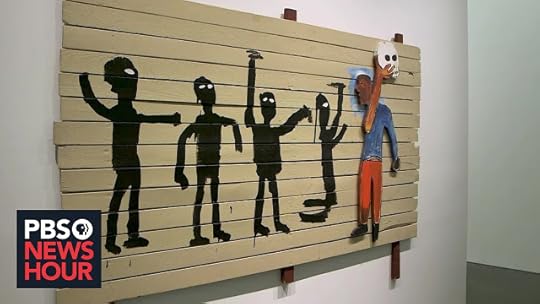
"Even amid the pandemic, some art exhibitions are opening to the public. "Grief and Grievance" at New York's "New Museum," a timely examination of race and racism, is one of them. Originally conceived by the late Okwui Enwezor, in the exhibition Black artists explore the aspects of loss in the contemporary Black experience and their own roles in telling that story. PBS NewsHour's Jeffrey Brown reports for Race Matters, and CANVAS, our ongoing arts and culture coverage."
Inside The Blacksonian With Dr. Lonnie Bunch

"Smithsonian Secretary Dr. Lonnie G. Bunch III talks with NPR Code Switch's Karen Grigsby Bates about how he turned entry into the Blacksonian into the hottest ticket in town and how the coronavirus is affecting the Smithsonians."
Reimagining Blackness & Architecture: A Spectrum of Blackness | Germane Barnes

"What do the kitchen, the front porch, and the water surrounding Miami, Florida all have in common? Architect Germane Barnes discusses his project “A Spectrum of Blackness: The Search for Sedimentation in Miami” and the ways Black people in the city shape these different spaces from past to present."-- The Museum of Modern Art
Left of Black S11 · E19 | Sexuality and the Black Press with Kim Gallon
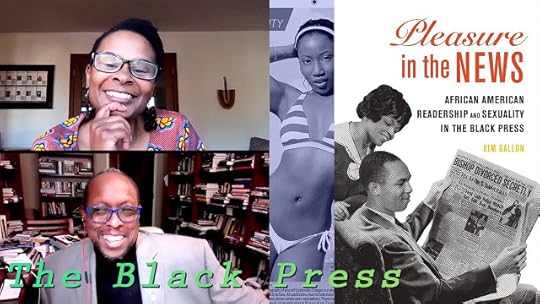
Over the years, has the Black Press been disproportionately focused on sexual scandal in the Black community over "real news"? Or was it a vehicle for sexual expression and empowerment? Join Left of Black host and Duke University Professor Mark Anthony Neal as he speaks with Purdue University Professor of History Kim Gallon to discuss her new book, Pleasure in the News: African American Readership and Sexuality in the Black Press, from University of Illinois Press. Prof. Gallon is also the founder and director of the Black Press Research Collective (BPRC) and the founder of COVID Black, a Black health data organization that uses data to tell stories about the Black lived experience to advocate for health equity.
Mark Anthony Neal's Blog
- Mark Anthony Neal's profile
- 30 followers



